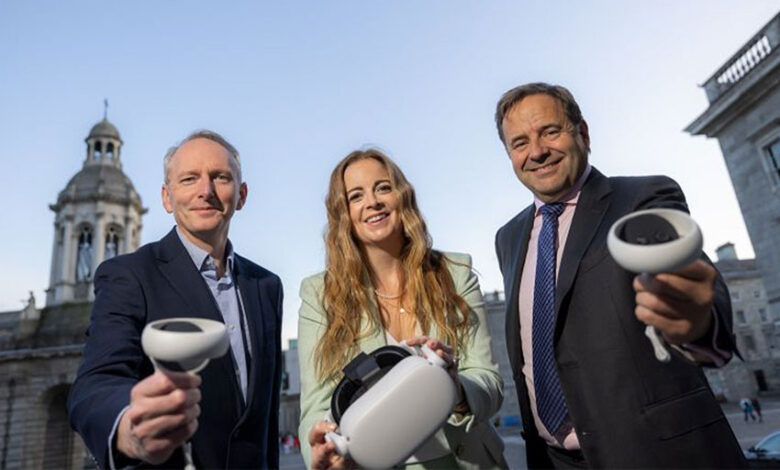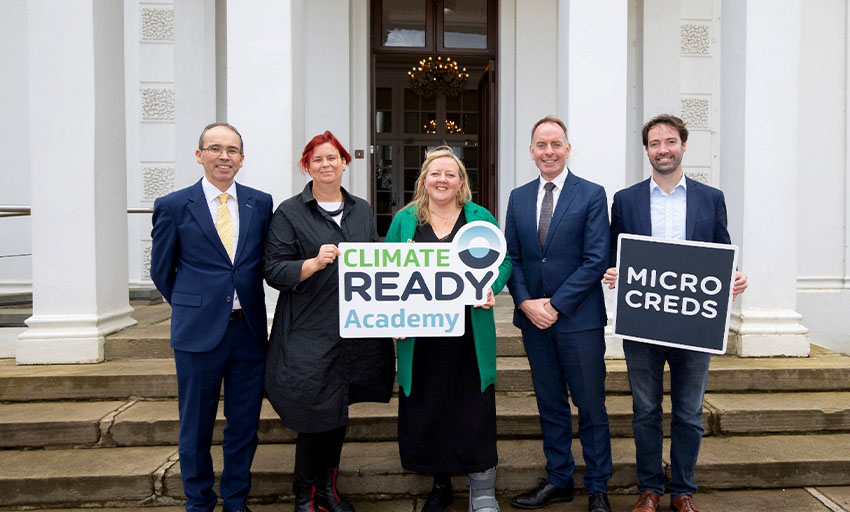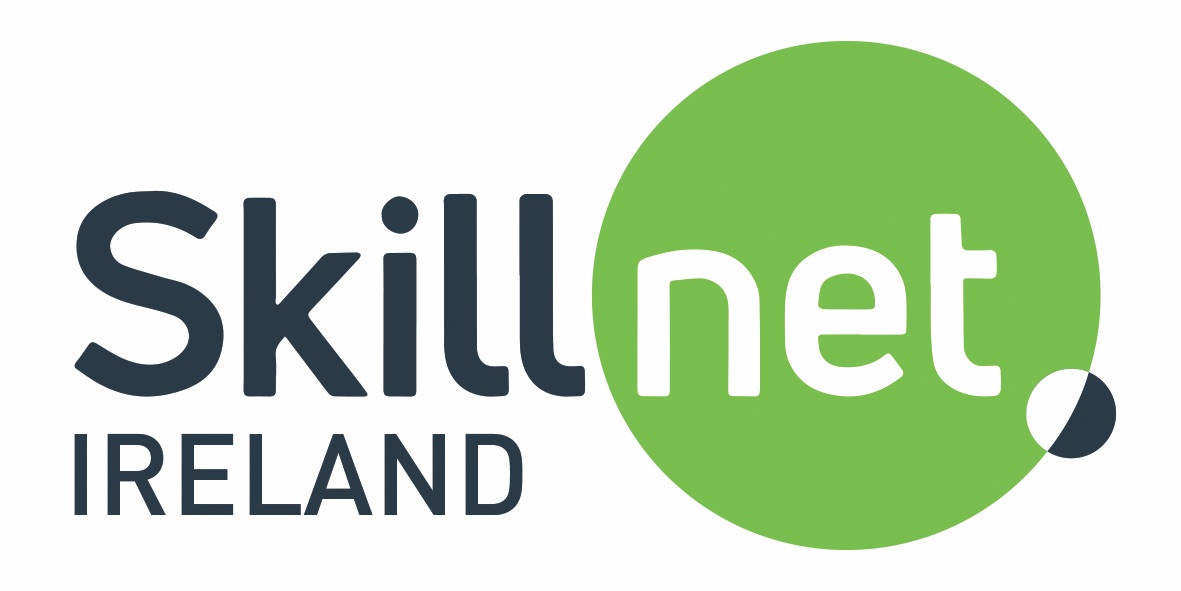Spearheading talent and futureproofing businesses

Ireland’s international reputation as an innovative, agile, and high-performing economy is critically dependent on its talented workforce. As the national agency responsible for spearheading workforce development for the enterprise sector, Skillnet Ireland is taking the lead in addressing 21st century skills challenges in an efficient and targeted manner.
A new report commissioned by Skillnet Ireland reveals valuable insights into the current and future skills needs of businesses. Ireland’s Talent Landscape 2024 presents the findings of a nationally representative survey of five hundred business leaders from businesses of all sizes, sectors, and regions. In this European Year of Skills, the report represents a timely assessment of our skills, talent, and workforce development needs.
The report demonstrates a commitment from enterprise to invest time and resources in people development to ensure competitiveness and future success. It also shows how crucial business leaders are in providing strategic direction and in recognising the value of lifelong learning and workforce development.
“The needs of industry are changing constantly,” says Skillnet Ireland Director of Business Networks Dave Flynn. “Companies have to react quickly to changes in the broader environment. This has implications for skills needs and the education and training required to meet them. Skillnet Ireland has an important role to play in facilitating partnerships between industry and higher-education institutions around the country to develop impactful talent development projects which will help meet those needs.”
Rapidly changing skills landscape
Accelerated digitalisation and the ongoing shift to a net zero carbon economy are resulting in widespread changes across all sectors and occupations. This evolving landscape is evident in the 56 per cent of Irish business leaders who have seen a shift in their skills requirements in the past two to three years, with six in 10 anticipating further changes over the coming three years.
64 per cent of all businesses surveyed consider ‘energy efficiency’ to have the potential to facilitate growth in the next two to three years, with 69 per cent of large businesses highlighting the increasing importance of sustainable supply chain management, and 41 per cent of SMEs planning to focus on developing circular economy skills. These findings are consistent with the Skillnet Ireland Talent for Ireland’s Green Economy report published last year in partnership with the Economic and Social Research Institute, in particular, the importance of green marketing, sustainability skills, and regulation.
Now more than ever, businesses need access to an agile, diverse, and talented workforce that is continuously acquiring and developing new skills so they can sustain their competitiveness in this rapidly changing environment. As evidenced in Ireland’s Talent Landscape 2024, there is growing awareness among Irish business leaders that upskilling, reskilling, and talent development are intrinsically linked to growth. Flynn explains: “We know businesses and workers often struggle to engage with and commit to upskilling programmes. These barriers manifest in a variety of ways including cost, time, relevance, uncertainty of offerings, but in a recent Skillnet Ireland study we found that existing time commitments is the main barrier preventing workers from engaging in upskilling programmes. However, despite these difficulties our research also highlighted that almost three-quarter of employees have engaged in some form of upskilling in the past 12 months.”
Accelerating digitalisation
As digital technologies continue to permeate and transform every aspect of a company’s operations, business leaders are acutely aware of the need for talent to adapt and thrive in the ‘digital economy’. 65 per cent of businesses surveyed said their staff will require some form of upskilling to facilitate their digital transition, with over 30 per cent indicating that over half of employees would need digital upskilling. Skillnet Ireland works with businesses to help them diagnose and assess their digital maturity to determine exactly where they are in their digitalisation journey and aligns skills needs to company objectives. We focus on the development of specialised talent for new or emerging technologies, in addition to raising baseline digital skills across all sectors. Overall, Skillnet Ireland supported 13,470 workers in 2022 through its dedicated digital focused networks across multiple sectors.
Skillnet Ireland also nurtures industry and academia collaboration by investing in the co-creation of new cutting-edge programmes with universities to address digital skills needs. For example, Cobotics Skillnet in partnership with the Atlantic Technological University (ATU) developed a new Higher Diploma in Engineering in Automation and Digital Manufacturing. Technology Ireland ICT Skillnet has also developed a number of programmes in recent years including the MSc in Artificial intelligence in partnership with UL, and the MSc in Fintech Innovation in partnership with Munster Technological University.

Developing skills for climate readiness
Businesses play a vital role in Ireland’s transition to a low-carbon and environmentally sustainable economy and the development of new workforce skills and competencies in this space is critical to ensure businesses remain competitive and resilient and can explore new opportunities for innovation and growth. Businesses are increasingly aware of this challenge, as proven by almost two-thirds of businesses who highlighted that their staff will require some form of upskilling in climate action and sustainability in the coming two to three years.
Skillnet Ireland supports businesses in developing talent for climate change through a range of initiatives, focusing on skills within the areas of energy management, sustainable finance, offshore wind, water stewardship, biodiversity, efficiency in building systems and the circular economy. In 2022, over 1,790 businesses and 5,800 employees benefitted from climate and sustainability upskilling programmes through the Skillnet Climate Ready Academy and specialised Skillnet Business Networks including Green Tech Skillnet and Sustainable Enterprise Skillnet. Skillnet Climate Ready Academy developed the first stackable micro-credentials in climate leadership in partnership with the University of Limerick to enable businesses to respond proactively to climate change and to capitalise on the business opportunities transitioning to a low-carbon economy presents.
Flynn outlines: “It is vital that businesses across all sectors and regions have access to leading edge development programmes which keep their employees up to date with the latest trends and innovations to develop a sustainable business and contribute to Ireland’s ambitious climate targets. This report demonstrates a strong commitment from enterprise to invest time and resources in people development, and a deep understanding of the importance of this for business competitiveness and future success.”
The findings in this report support Skillnet Ireland’s strategic commitment to meet the talent requirements of a digital future, to foster the growth of a low-carbon and sustainable economy, to enhance small and medium-sized enterprise leadership, and to bolster foreign direct investment through talent development. Skillnet Ireland will continue to respond to talent and skills challenges in a proactive and agile manner, and future-proof Ireland’s businesses by equipping workforces with the essential skills, knowledge, and capabilities, for the world of work.

To learn more about Skillnet Ireland visit: www.skillnetireland.ie





